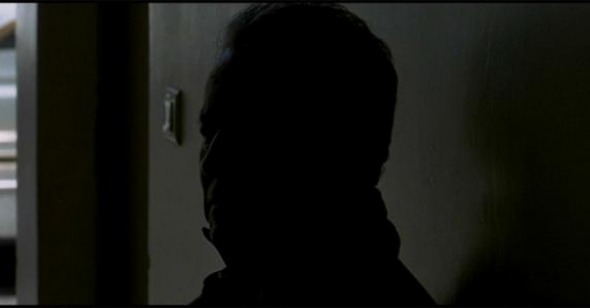The Body Says No
Adam Nayman on L'Intrus
A writer for Sight and Sound once observed, quite correctly, that Claire Denis “is good with bodies.” She was writing in regard to Beau travail (1999) and its creeping full-body pans of its shirtless Legionnaire protagonists, but Denis’s subsequent films provide equally fertile grounds for appreciation. Recall the slender neck and bobbing, good-enough-to-eat calves of the Parisian hotel maid catching Yankee carnivore Vincent Gallo’s gaze in Trouble Every Day (2001) or the brief but indelible profile of Valérie Lemercier bathing on her last night as a single girl in Friday Night (2003).
Denis is more than a canny sensualist, of course: Beau travail’s beefcake indulgences are deployed in the service of a provocative colonialist critique that questions exactly why these crew-cut French boys are sweating it out in the hot sun of a country that does not require their services. It’s a theme carried over from her 1988 debut Chocolat, a melting colonialist memoir. Trouble Every Day and Friday Night are less overtly politicized, but overall, Denis’s films are as much about geographical boundaries as physical ones: her early masterpiece I Can’t Sleep (1994) explored the difficulties of assimilation in the cosmopolitan metropolis of Paris, while the title of the TV movie U.S. Go Home (1994) is fairly succinct in its implications.
L'Intrus, which has been routinely described as impenetrable (including by myself after my first viewing) in the year and a half since premiering on the film festival circuit in 2004 is best analyzed in light of its creators’ twin preoccupations. It’s a movie about Louis, an aged soldier of fortune (Michel Subor, resplendently craggy) whose body appears to be breaking down. He brokers himself an under-the-table heart transplant and then tries, at great expense, to reconnect with his estranged son, who may or may not be in Tahiti.
That’s a thumbnail sketch of the film’s objective chronology. Although truthfully, this description is akin to saying that Mulholland Drive is a film about an actress who has her sometime lover murdered and feels really, really bad about it. Like Mulholland Drive, L'Intrus obliterates the literal-figurative binary: the real and unreal co-exist at a single level of narrative reality. One example: Louis lives, with several beautiful dogs, in a cabin in the woods on the French Swiss border. He is subject to occasional attacks by masked intruders, whom he fends off in brutal style. As far as I can tell, this is literally happening, but these anonymous interlopers with their popping guns and furtive, swarming movements also seem representative of Louis’s encroaching heart condition. When he murders one of them, the act can be read as an act of internal defiance: His body is staving off failure.
L'Intrus represents the apotheosis of Denis’s odd brand of naturalism. Beau travail and Trouble Every Day were attempts to convey interior struggle through external observation, but L'Intrus is almost hysterically ambitious; the lead character remains totally unknowable except via external observation. Subor’s performance doesn’t give us much—his features are impacted, and what little dialogue he has is spoken tersely. But when we see him making love with his pharmacist girlfriend, the black spots on his back line up with the freckles on her face in a way that seems revelatory—in a brief, wordless scene of lovemaking, Denis suggests that they’re a mottled match.
Denis’s script is adapted from an autobiographical novel by the French philosopher Jean-Louis Nancy, who wrote about his own heart transplant as a metaphor for “intrusion”—the new organ as unwelcome visitor. L'Intrus is about the alienating effects of Louis’s heart transplant, but it’s also about the kind of intrusions that appeared in Chocolat, I Can’t Sleep, and Beau travail: strangers in places where they don’t belong. Louis’s journey to Tahiti includes a layover in Korea, where he bonds with a drunken businessman over the lyrics of an Elvis Presley song: pop as the great common denominator. Louis’s feral intensity is out of place in Korea, but by the time he boards a boat for the turquoise frontiers of Tahiti, he might as well be an alien. It’s suggested that Louis had spent time there as a young man, and that he is returning, at the end of his life, in search of personal closure, but this Paradise doesn’t really want him: the key image of the film finds Louis carrying a mattress through shallow ocean waters, an indelible image of humanity imposing a need for personal comfort within untenable environments.
There’s no question that L'Intrus is challenging, and that dissenters come by their aversions naturally. But Claire Denis comes by her ellipticism naturally, too: there’s nothing in L'Intrus that suggests obfuscation. In keeping with her past work, it’s a movie about the vast spaces that lies between countries and within people, rendered as a slowly oscillating fever dream of conflicting moods: it’s at once languorous and terrifying, erotic and impassive, monumentally distanced and yet finally intimate in a way that is, to my mind, without recent cinematic precedent.
